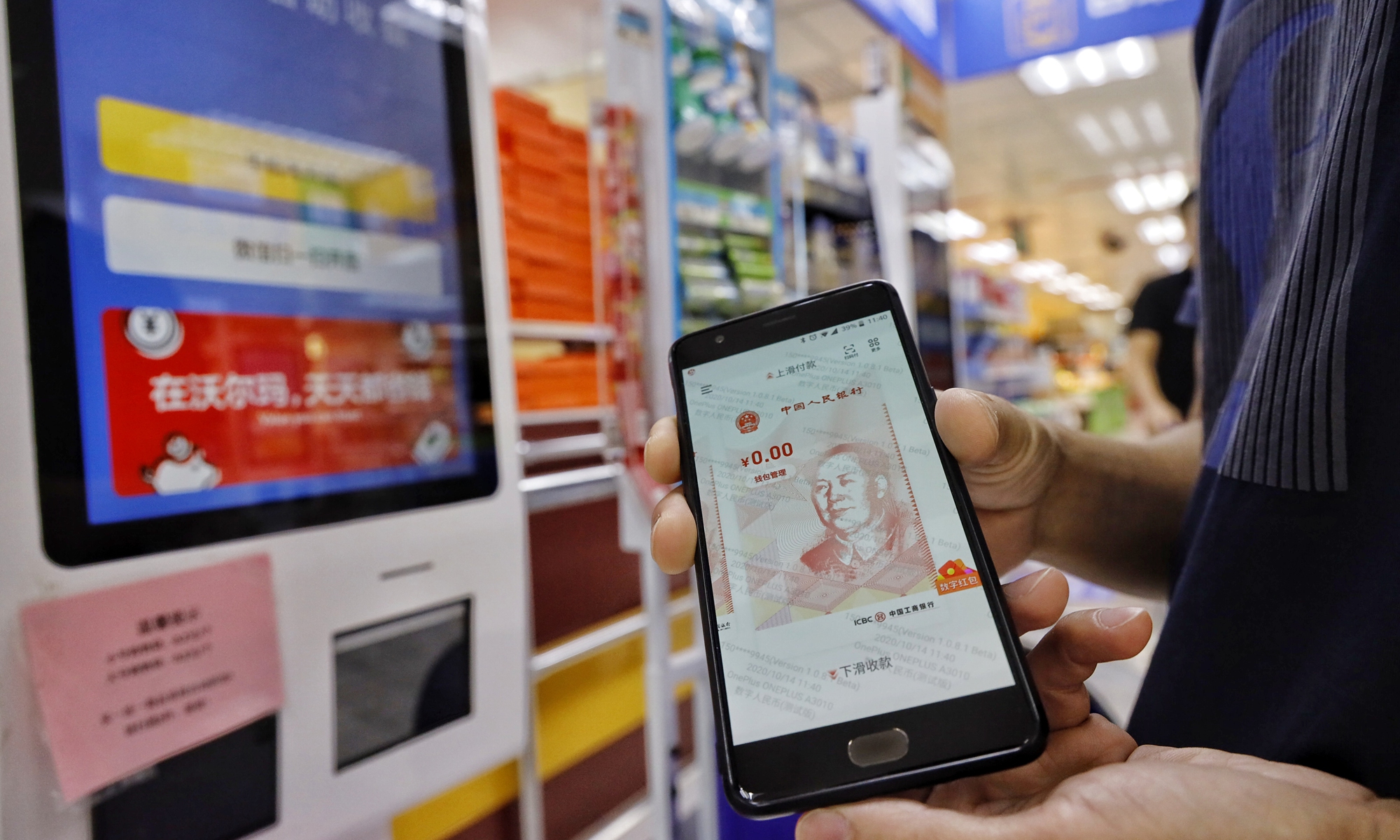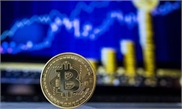Digital yuan test draws 2m applicants
Hong Kong’s role in China’s transformation to be strengthened: observers

Residents who received "red packets" of digital RMB use the money in stores in Shenzhen, Guangdong Province, on Wednesday. The city launched a pilot program to distribute 10m yuan ($1.49m) in the form of digital currency to residents on Monday.Photo:Li Hao/GT
"We received a notice in mid-September to upgrade our point-of-sale gear to add Digital Currency Electronic Payment (DCEP) functions. We got the idea that public trials of the digital currency might land in our district, but we didn't expect that to happen so quickly," a vendor at a mall in Shenzhen, South China's Guangdong Province told the Global Times on Wednesday.In Shenzhen's Luohu district, the Global Times found that many vendors have posted DCEP signs. More than 3,000 vendors and shopping malls in Luohu such as Walmart and retailer CR Vanguard have upgraded their POS terminals to support digital yuan payments without any minimum.
It's all part of the first massive public test of the digital currency, backed by the People's Bank of China, the central bank.
In a bold move to publicly test the digital unit, the local government of Shenzhen, along with the central bank, on Monday gave away 50,000 digital "red packets" each containing 200 yuan ($30).
Wu Xiaozhong, a 35-year-old worker at a decoration company in the city, was one of the lucky recipients among nearly 2 million applicants. He told the Global Times on Wednesday that using the digital yuan is convenient and efficient, "as simple as using Alipay and WeChat Pay".
"But I feel using the central bank-backed digital yuan is safer than other payment methods. I will continue to use the digital currency" if it's officially rolled out, Wu said.
China's four large commercial banks - Industrial and Commercial Bank of China, Agricultural Bank of China, Bank of China and China Construction Bank - are connected to the digital wallet used in the test.
Three other institutions - Postal Saving Bank of China, MYbank and WeBank - will also provide digital wallet services in the future, industry sources said.
Shenzhen's move indicates that the internal tests of the digital yuan have achieved positive results to certain extent, Dong Ximiao, a researcher with the National Institution for Finance and Development, told the Global Times.
He said that trials of the digital yuan should be expanded to other cities in an appropriate way and the digital currency should be officially released as soon as possible to meet the public's need for a sovereign digital currency.
Apart from Shenzhen, the digital yuan is reportedly undergoing trials in three other cities, which are Suzhou, East China's Jiangsu Province, Chengdu, Southwest China's Sichuan Province, and the Xiongan New Area in North China's Hebei Province.
Future trials may be carried out in Shanghai's Pudong because Shanghai, as an international financial center and international trade port, can provide a variety of application scenarios for DCEP, while technological innovation is major driver of Pudong's development, Dong Shaopeng, a senior research fellow at the Chongyang Institute for Financial Studies of Renmin University of China, told the Global Times on Wednesday.
Experts said that Hong Kong, as the largest offshore yuan trading center and a crucial part of the Guangdong-Hong Kong-Macao Greater Bay Area, should strive to be a pilot zone for the digital yuan in a bid to promote the development of electronic payments in Hong Kong while playing a larger role in the country's expanded reform and opening-up.
Shentu Qingchun, CEO of Shenzhen-based blockchain firm BankLedger, told the Global Times that Shenzhen's proximity to Hong Kong allows for complex applications of digital currencies. The special administrative region - an international financial hub - supports payment, settlement and clearing based on a wide range of currencies.
"Policymakers could also consider launching DCEP trials in Hong Kong to further accelerate the yuan's internationalization and challenge the US dollar's hegemony," Qingchun said.
Wang Peng, an assistant professor at the Gaoling School of Artificial Intelligence at Renmin University, told the Global Times that Hong Kong's role in the internationalization of the yuan as well as the country's digital transformation will be further strengthened.
"Hong Kong not only contributes to the Chinese mainland's digital progress in terms of capital, finance and application scenario support but also creates some unicorns. Although Hong Kong has fallen behind its neighbor Shenzhen in terms of the internet over the past 10 years, Hong Kong's financial sector and advanced experience will continue to assist the mainland's digital transformation," Wang said.




